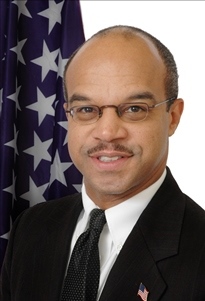by Mary Rupert
A bill that would expand DNA searches to closed cases has passed the Kansas Legislature.
According to State Sen. David Haley, D-4th Dist., who advocated for the bill, Senate Bill 102 was bundled with another measure and passed with only minor changes from the original bill.

The bill now goes to the governor for a signature.
“We’re excited that this will be the first state in the nation when this task force convenes,” Sen. Haley said.
Under this bill, a task force will be appointed that will make rules for applying DNA results to previously closed cases.
Currently, it is usual procedure for DNA testing results not to be matched with closed cases.
“This is the brainchild of the Innocence Project, and it is the advocacy of Alvin Sykes and the Emmett Till Justice Campaign which brought it to my attention,” Sen. Haley said. “I was fortunate enough to shepherd it through the Kansas legislative process.”
Sen. Haley said it is likely that any innocent persons who may be in prison will one day be freed through this legislation. He said the Innocence Project estimates that 4 to 6 percent of the prison population nationally contains innocent people, wrongly incarcerated for crimes they did not commit. That also means other people who are guilty of the crimes may be at large, and if the new DNA information leads to their conviction, society could be safer.

Sykes said the passage of this bill was a great day for people who have been wrongfully convicted in the past. It also was a great day for Kansas, becoming the first state in the country to expand DNA searches to include cold cases as well as open cases.
He said he has great admiration for Sen. Haley’s achievement in getting the bill passed. He said he was happy that the Innocence Project brought this to him and worked on draft legislation after identifying the problem at a national level.
Their work identified this loophole in the system that was contributing to evidence being passed over that would be helpful to the wrongfully convicted, he said. He added he was looking forward to working with them in getting the legislation passed in the other states.
The Emmett Till Justice Campaign feels very good about this legislation being passed, he said. The campaign previously achieved the passage of federal legislation allowing some cold civil rights cases to be reopened, he said.
Sykes said this legislative initiative was consistent with the Emmett Till Justice Campaign’s mission.
“Underlying every wrongfully convicted case is an unsolved case, and that is consistent with our mission,” Sykes said.
“The poison that is coming out of Emmett Till’s death in 1955 continues to be turned into the medicine of justice in 2019, and we will continue to do as much as we can to continue with that mission, as long as we can,” Sykes said.
“We are truly pleased as a family with the passage of this legislation, and I spoke to my cousin (the Rev.) Wheeler (Parker) about it, and everyone is truly pleased with the passage of this legislation,” said Dr. Sheila Chamberlin, a cousin of Emmett Till’s. “It will help many people.”
“This is a groundbreaking piece of legislation,” said Rebecca Brown, director of policy for the national Innocence Project. “We are so grateful to the advocacy of Alvin Sykes and also to Sen. Haley for his leadership in championing this piece of legislation. Kansas is now the first state in the nation to pass such legislation and we believe this will serve as a model for the rest of the country.”
Brown said it has been revealed through a number of cases that hits in the Combined DNA Index System, the CODIS national database, can occur in cases in which someone else, not the person with whom the DNA match was made, has already been convicted.
“This raises questions about whether the proper person was convicted, and whether the match is in fact an important lead to the real perpetrator of the crime, who eluded detection,” Brown said. “And this piece of legislation promises to address that issue.
“We could not be more thrilled with the progress of this legislation,” Brown said.
It represents a “win-win” for Kansas – the possible revelation of wrongful convictions, and the detection of people who actually committed these crimes, she said.
Besides support from Kansas City, Kansas, human rights advocate Alvin Sykes and also by the Innocence Project, the measure had support from law enforcement officials.
To see an earlier story on this topic, visit https://wyandotteonline.com/closed-case-dna-bill-passes-senate/.
.
